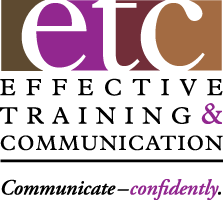Last month’s article on meeting agendas generated some interest and requests for more content on the topic. So, here are more Best Practices for your Meeting Management Tool Kits.
1. Meeting Summary – Facilitators Should
- Send out an email or Outlook-type Meeting Summary within two workdays of the meeting to all participants and other managers or key staff not otherwise invited but who have an interest in the content and outcomes, including:
- Facilitator name & contact info.
- Purpose of meeting and intended outcomes.
- Complete list of attendee names & contact info.
- Concise summary of main discussion points, decisions made, action items decided and, assignments given for follow up or next meeting.
- Attachments of any meeting topic follow up materials with clear indications of any required attendee responses to specific questions or needed input with due date and appropriate person to receive information.
- Date, time, location, purpose and tentative agenda of next meeting, where appropriate and known.
2. Meeting Management – Facilitators Should:
- Follow up prior to meeting with those participants with specific assignments to ensure compliance.
- Arrive at least 10 minutes early to set up room, check AV equipment and distribute materials as needed.
- Start on time and not stop to fill in latecomers.
- Ensure assigned ‘scribe’ is taking appropriate notes\
- Encourage all participants to engage and contribute without judging or allowing anyone to dominate.
- Keep group on task and on time.
- Control long-winded or rambling participants from getting off track or going into too much detail.
- Summarize discussion points and decisions made and indicate action items/next steps and specific assignments as needed before adjourning.
- End on time unless group decides extending time is absolutely necessary and that the room is available. Otherwise, schedule another meeting.
- Ensure room is cleaned up and reset.
3. Meeting Participation – Participants Should:
- Arrive early or at least on time and stay the entire time, unless previous commitment shared with facilitator.
- Avoid phone calls, texts, using computers, etc. unless technology actually needed for meeting.
- Prepare for meeting when needed by reviewing materials sent out in advance.
- Engage in a respectful manner with each other and facilitator.
- Avoid side conversations.
- Clean up room at the end.
These Best Practices will increase the effectiveness and efficiency of your workplace meetings and often result in fewer, shorter and better meetings. So, make the effort to help your organization keep meeting like this. If they already do, good for them and good for you!
